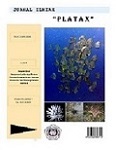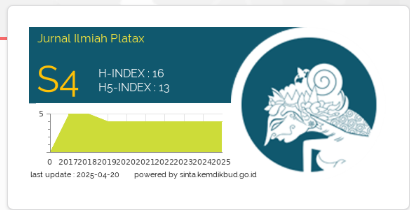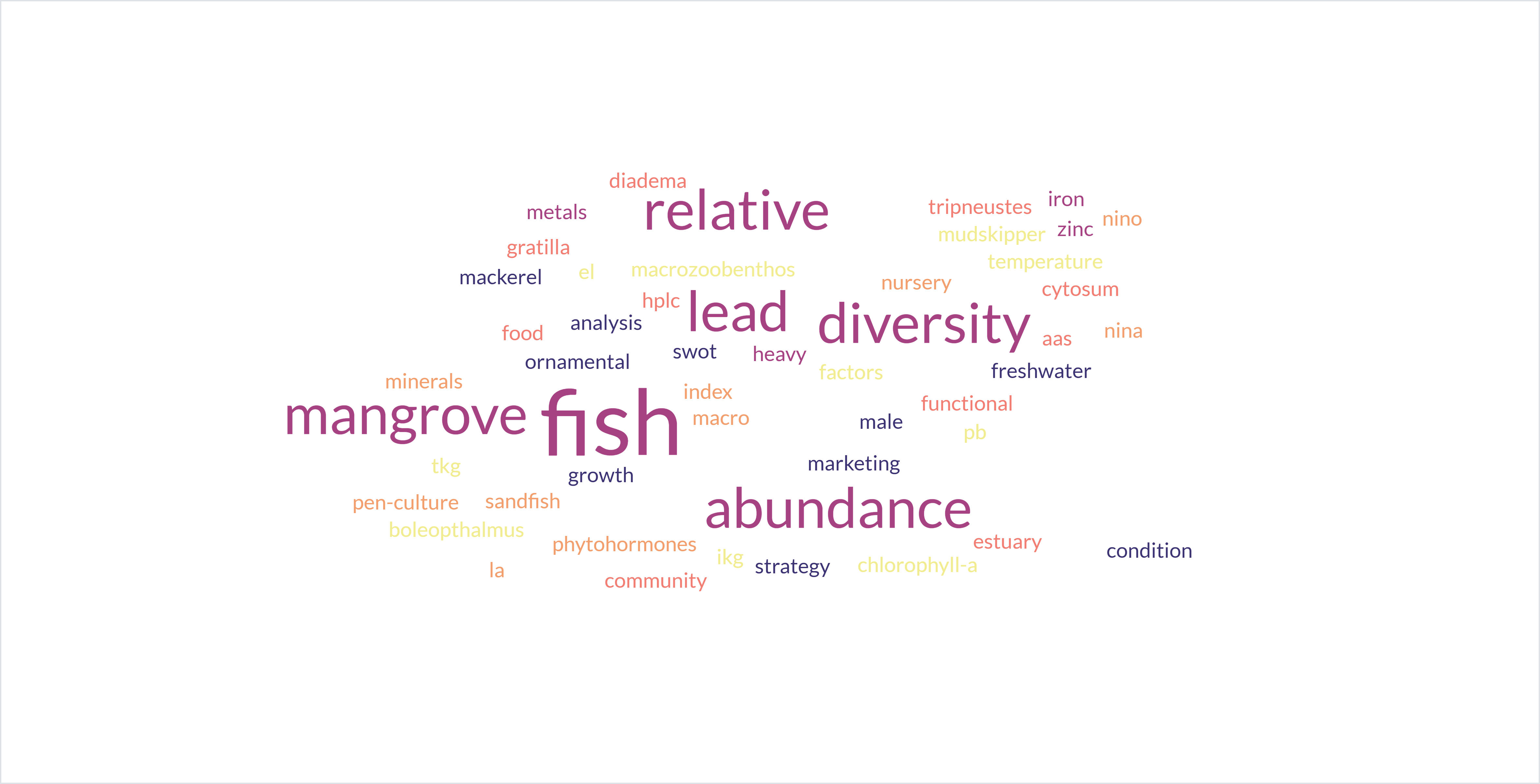Utilization of life feed Alona sp., Boiled Egg Yolk and Commercial Feed Toward Survival Rate of Betta Fish Larvae
DOI:
https://doi.org/10.35800/jip.7.2.2019.23651Abstract
The purpose of this study was to find out the survival rates of betta fish larvae (cupang) that were given life feed Alona sp., boiled egg yolk and commercial feed for 21 days. Data analysis was performed by one-way ANOVA, and continued with BNJ (Tukey) test. The result of the survival rate is as follow treatment with life feed Alona sp. 56%, treatment with boiled egg yolk 26%, and treatment with commercial feed 0%. The results of statistical tests show there are significant differences. Significant value p <.0002 (<.05). Water quality parameter measured during the study was temperature of 26 ºC.
Keywords: betta fish larvae, life feed, Alona sp., survival rate
ABSTRAK
Tujuan penelitian ini adalah untuk mendapatkan laju kelangsungan hidup larva ikan betta (cupang) yang dibeerikan pakan alami Alona sp., rebusan kuning telur dan pakan komersil selama 21 hari. Analisis data dilakukan dengan ANOVA one way, dan dilanjutkan dengan uji BNJ (Tukey). Hasil laju kelangsungan hidup adalah sebagai berikut, perlakuan dengan pakan alami Alona sp. 56%, perlakuan dengan rebusan kuning telur 26%, dan perlakuan dengan pakan komersil 0%. Hasil uji statistik menunjukan adanya perbedaan yang nyata. Nilai signifikan p <.0002 (<.05). Parameter kualitas air yang diukur selama penelitian adalah suhu 26ºC.
Keywords: larva ikan betta, pakan alami, Alona sp., kelangsungan hidup
Downloads
Published
How to Cite
Issue
Section
License
COPYRIGHT
Authors who publish with this journal agree to the following terms:
Authors hold their copyright and grant this journal the privilege of first publication, with the work simultaneously licensed under a Creative Commons Attribution License that permits others to impart the work with an acknowledgment of the work's origin and initial publication by this journal.
Authors can enter into separate or additional contractual arrangements for the non-exclusive distribution of the journal's published version of the work (for example, post it to an institutional repository or publish it in a book), with an acknowledgment of its underlying publication in this journal.
Authors are permitted and encouraged to post their work online (for example, in institutional repositories or on their website) as it can lead to productive exchanges, as well as earlier and greater citation of the published work (See The Effect of Open Access).






































